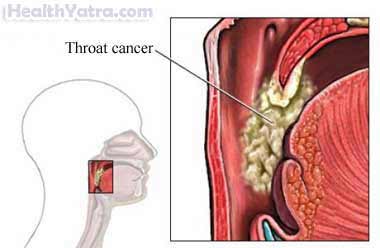Definition
Nictotine addiction is when a person becomes dependent on nicotine. Being dependent means there is a physical change in how your body reacts to a substance. Your body will also have a reaction when you stop using the substance.
Nicotine can be found in tobacco products such as cigarettes, snuff, chewing tobacco, cigars, or pipes. Tobacco use is also associated with several serious health conditions, such as:
- Chronic obstructive pulmonary disease
- Chronic bronchitis
- Emphysema
- Cancer, like cancers of the larynx (voice box), oral cavity, throat, esophagus, lung, and colon
- Heart disease
- Stroke
- Dementia
- Increased risk of stillbirth, infant death, low birth weight, miscarriage, premature delivery, or sudden infant death syndrome
- Shorter life span
- Problems if you have surgery

Nicotine addition can be treated, often with a combination of treatments.
Causes
Nicotine acts on the brain’s chemistry. It creates feelings of pleasure. However, the effects go away within a few minutes. Users will need to continue using nicotine to keep the good feelings going. This cycle can lead to addiction.
Risk Factors
Anyone who uses nicotine products can become addicted to the substance.
Symptoms
Symptoms develop when nicotine is not being used, also known as withdrawal. Symptoms of withdrawal include:
- Irritability
- Craving
- Nervousness
- Headache
- Thinking and attention problems
- Trouble sleeping
- Increased appetite
Diagnosis
Your doctor will ask about your symptoms, medical and smoking history. A physical exam will be done.
Breathing tests may also be done to see how well your lungs are working.
Treatment
Talk with your doctor about the best treatment plan for you. Treatment may involve one or more therapies. Options include:
Nicotine Replacement Therapy (NRT)
NRT relieves withdrawal symptoms. NRT products:
- Nicotine gum
- Lozenges
- Nasal sprays
- Patches
- Inhalers
The chance of abusing these products is low since NRT does not create “feel good” feelings.
NRT may help you to:
- Avoid smoking
- Reduce the amount of tobacco you use
- Quit and stay smoke-free
Behavioral Therapy
Behavioral therapies include:
- Counseling
- Group behavior therapy
- Telephone quit lines, cell phone programs, and text messaging programs
- Internet and computer-based programs
- Self-help classes and manuals
- Cognitive behavioral therapy
Medication
Some antidepressants and nicotine partial agonists may help you quit. Other medications may help ease withdrawal symptoms or block the effects of nicotine if you start smoking again.
Prevention
The best prevention is to never use tobacco products. Try to avoid places where people are smoking.
